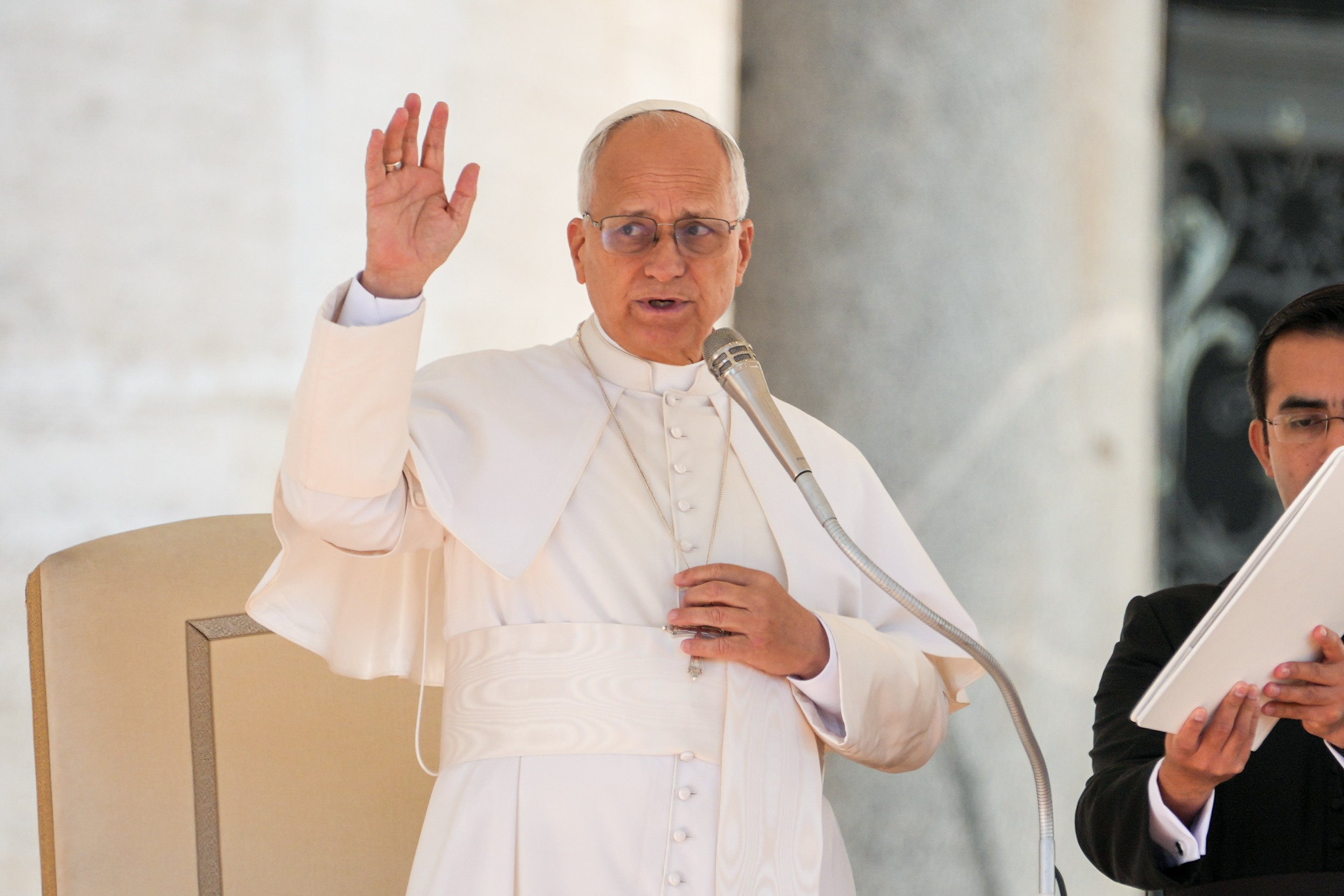April 6, 2018 at 1:53 p.m.
WORD OF FAITH
Preconceived notions of God
'The Lord God will wipe away the tears from all faces, and the disgrace of His people He will take away from all the earth, for the Lord has spoken.' - Isaiah 25:8
(Author's note: The last part of Sunday's Gospel originally was a completely different parable, joined to the other simply because both had to do with wedding feasts.)
Sunday's Gospel passage (Matthew 22:1-14) took shape long before Matthew decided to include it in his Gospel. Both he and Luke discovered it in a document which disappeared several centuries after Jesus' historical ministry.
Scholars refer to that lost scroll as the "Q:" a collection of Jesus' sayings which circulated in the earliest Church, and which Matthew and Luke employed as a source for their writings. Whenever we surface an identical passage in Matthew and Luke not found in Mark, it's almost always from the Q.
Knowing the pre-Gospel history of this passage tells us how early the general Jewish rejection of Jesus' reform became a problem for those Jews who accepted His message, personified by the Church for whom Matthew wrote. Why would the people for whom Yahweh sent a messiah eventually reject the messiah?
An invitation
One way the earliest Christian preachers dealt with this unforeseen development was to compare the overwhelming Jewish rejection of Jesus' faith to a rejected wedding invitation. It's significant that Sunday's Gospel begins with the phrase, "The kingdom of heaven may be likened...." Matthew's Jesus employs "kingdom of heaven" as a way to describe God working effectively in our everyday lives.
In this specific situation, the evangelist insists that we're always invited to experience God breaking into whatever we do, discovering God as the essential aspect of who we are. But it's just an invitation. No one's forced to discover God on that level. Only those who freely accept the invitation of God will have an experience of God.
Like all invitations, it presents us with a choice. It's up to us to determine the more important event on that particular day. What are we willing to give up? What best fits our schedule? What creates the least hassle?
Our choices always have consequences. (At the time Matthew's Gospel was written, many Christians believed the Roman destruction of Jerusalem in 70 AD was partially a result of Judaism's rejection of Jesus.)
Before we come down heavy-handedly on Gospel Jews, we must appreciate that Jesus' invitation to experience God's kingdom wasn't exactly the invitation most Jews were expecting. Many probably would have taken Sunday's Isaiah (25:6-10a) reading literally: believing that one day, when the messiah arrived, there actually would be a great banquet on Mount Zion.
You don't get it
We know from the Gospel story of Jesus riding a donkey instead of a horse into Jerusalem on Palm Sunday that the historical Jesus constantly had to deal with people misinterpreting His messiah-ship. During His earthly ministry, most Jews believed the messiah's main task was to rid Israel of Roman occupation. Military leaders rode horses, not donkeys.
Jesus' idea of salvation was quite different from that of the majority of His fellow Jews. For this Galilean carpenter, salvation revolved around experiencing God working effectively in one's daily life. That's the message He preached, the message He lived.
That experience radically changed the way one approached and lived life. Paul certainly was convinced that sharing Jesus' faith brought him a unique salvation. He reminds the Philippians in Sunday's passage (Phil 4:12-14, 19-20) that external wealth or want no longer matters. All that counts is that God supplies whatever we need.
I presume many of Jesus' contemporaries didn't understand the significance of the event to which they were being invited. They compared His invitation to the one they'd created for themselves through the centuries. When the two didn't match, they rejected His.
The lesson is clear - and challenging. Not only are we expected to respond to God's invitation to experience Him, but we're also expected to be surprised at how God actually enters our life. Preconceived invitations are not permitted.[[In-content Ad]]
SOCIAL MEDIA
OSV NEWS
- Texans vote overwhelmingly to enshrine parental rights in state constitution
- Supreme Court declines Kim Davis case seeking to overturn same-sex marriage ruling
- ‘Do you love Jesus more than your political opinion?’: Bishop Tyson says the church faces a test
- Vatican says Swiss Guards investigating alleged antisemitic gesture
- Bishop: Survival of Christian communities in Nigeria depends on security, justice
- Pope asks for extra care when using AI in medicine
- Pope holds long meeting with Belgian abuse survivors
- Delegation of top prelates, lay activists gives Brazil church strong presence at COP30
- Pope offers prayers for the Philippines and for peacemakers
- Dig deep and work patiently to keep church on solid foundation, pope says







Comments:
You must login to comment.